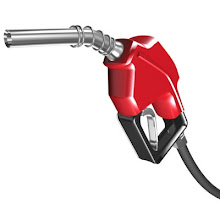
Candidates Face Gas Pump Pinch
Updated January 14, 2008
Author: Toni Johnson
In the state of Michigan, site of the January 15 presidential primaries, gasoline prices averaged 92 cents higher than January of last year, according to one study. With the highest unemployment rate in the country, soaring foreclosure rates, and the state economy in the doldrums, Michigan voters are expected to send out what the Detroit News calls “an economic SOS.”
Author: Toni Johnson
In the state of Michigan, site of the January 15 presidential primaries, gasoline prices averaged 92 cents higher than January of last year, according to one study. With the highest unemployment rate in the country, soaring foreclosure rates, and the state economy in the doldrums, Michigan voters are expected to send out what the Detroit News calls “an economic SOS.”
Nationwide, the economy is also a chief concern of voters and higher gasoline prices are shaping up as a major issue (foreignpolicy.com) in the 2008 presidential campaign. A NBC News/Wall Street Journal poll taken in late 2007 shows 70 percent of respondents ranked gas prices and heating oil as the number one economic issue (PDF) significantly affecting them. The issue garnered the highest U.S. interest of any news story in 2007, says a recent Pew Research Center poll.
The candidates have certainly noticed. At a January 5 debate, McCain said: “At that price of oil we’re going to send $400 billion a year overseas to oil-producing countries.” Iowa Republican caucus winner Mike Huckabee added: “One of the reasons that we're dependent is because we have allowed the oil companies to dictate not just prices, but policy.” But in New Hampshire at least, in spite of the issue’s high profile, an International Herald Tribune article reports some voters found the candidates “had disappointingly vague approaches to energy policy.”
Biofuels enjoy bipartisan support among the candidates (AP), and the recent raising of fuel efficiency standards was widely backed by both parties in Congress. But Democrats and Republicans have differed on how to deal with the oil and gasoline issue. The recent congressional debate over the newest energy law reflected contrasts in the two parties. Democratic candidates, including John Edwards, Iowa caucus winner Sen. Barack Obama (D-IL), and Clinton, would seek mandates for biofuels, favoring increasing production to around 60 billion to 65 billion gallons per year in the next two decades. Calls for biofuel mandates are similar to the requirements Democrats sought for renewable energy production—blocked by Republicans—in the new law. Several Republican candidates favor increasing biofuel production but have not called for specific production requirements.
Democratic candidates also support tougher fuel economy standards (at least 40 miles per gallon by 2020) than the latest energy law. McCain would have pushed for a fuel economy standard similar to the law but wanted to move up implementation time by four years. And some Republicans, including candidates Rudy Giuliani and Romney, favor solutions such as building more oil refineries and expanding domestic drilling, including in the Arctic National Wildlife Refuge. McCain, along with Democratic candidates, opposes drilling in the refuge.
It is unclear what effect the proposed policies would have on prices in the short term. Supply-side initiatives like more drilling can take at least five years before they can be brought online, experts say. Implementing tougher fuel economy standards is also a relatively slow process because it takes time for the nation’s auto fleet to change. And some energy experts question how much biofuels can help ease prices and bolster supplies, saying gasoline makers may respond to mandates by lowering production (AP).
Most energy experts agree that, with supplies tight and demand increasing, the days of inexpensive oil are over. A recent increase in oil market speculation has also helped increase price volatility. A CFR Task Force Report on U.S. oil dependence included among its policy options an increase in the gas tax, with the revenues possibly to be used to research energy technologies.
(full article see http://www.cfr.org/publication/15238/candidates_face_gas_pump_pinch.html)




No comments:
Post a Comment